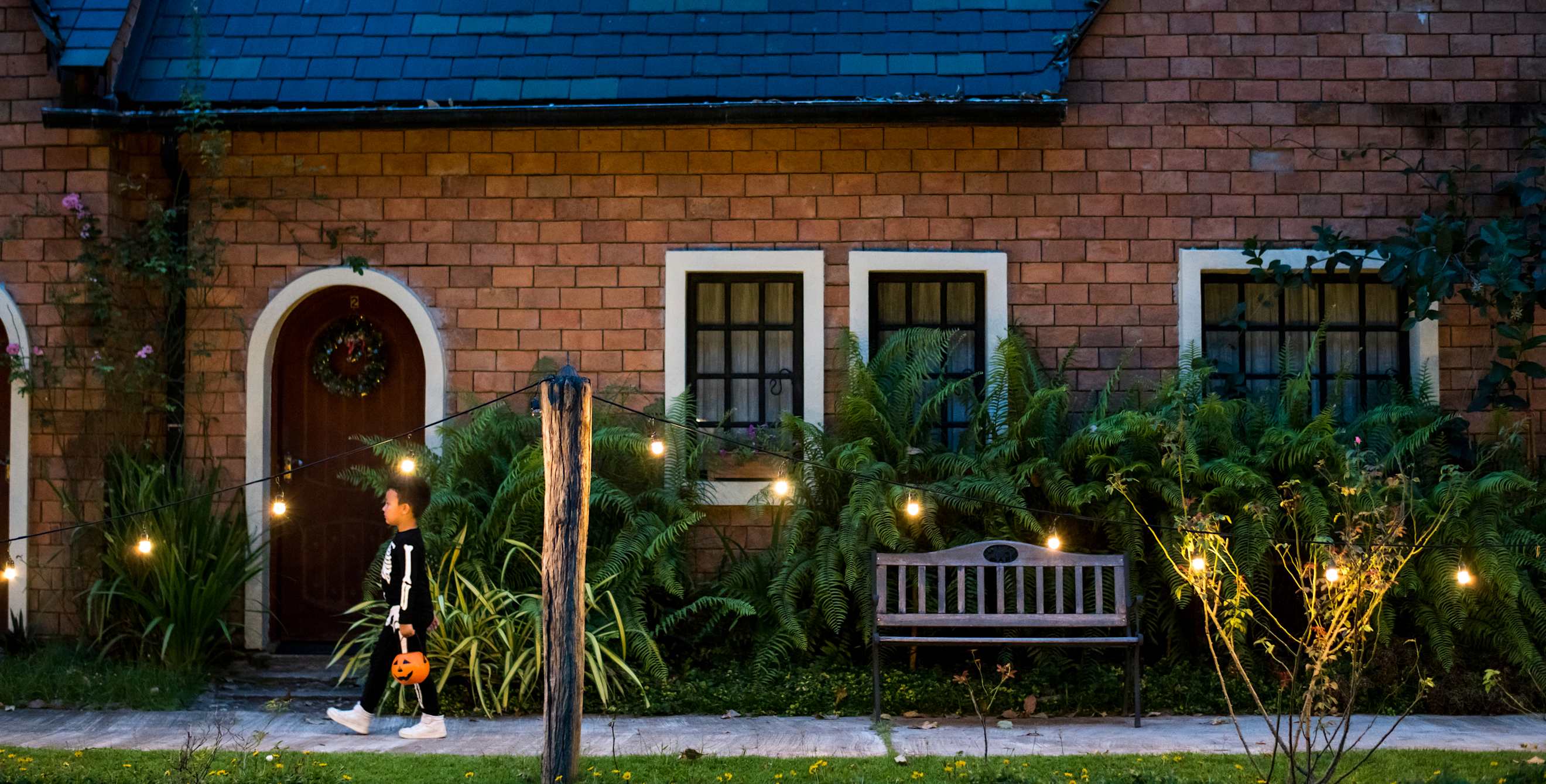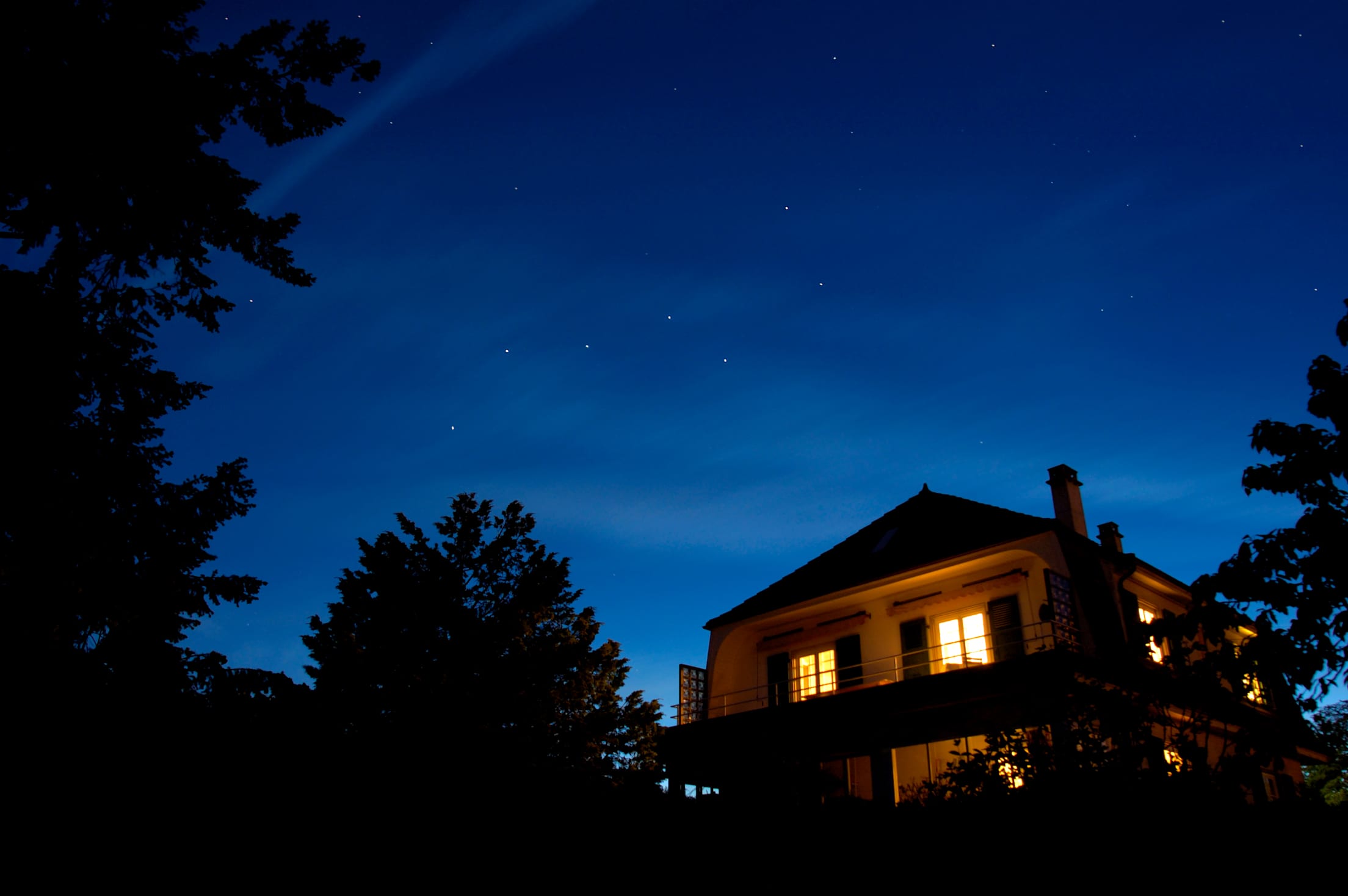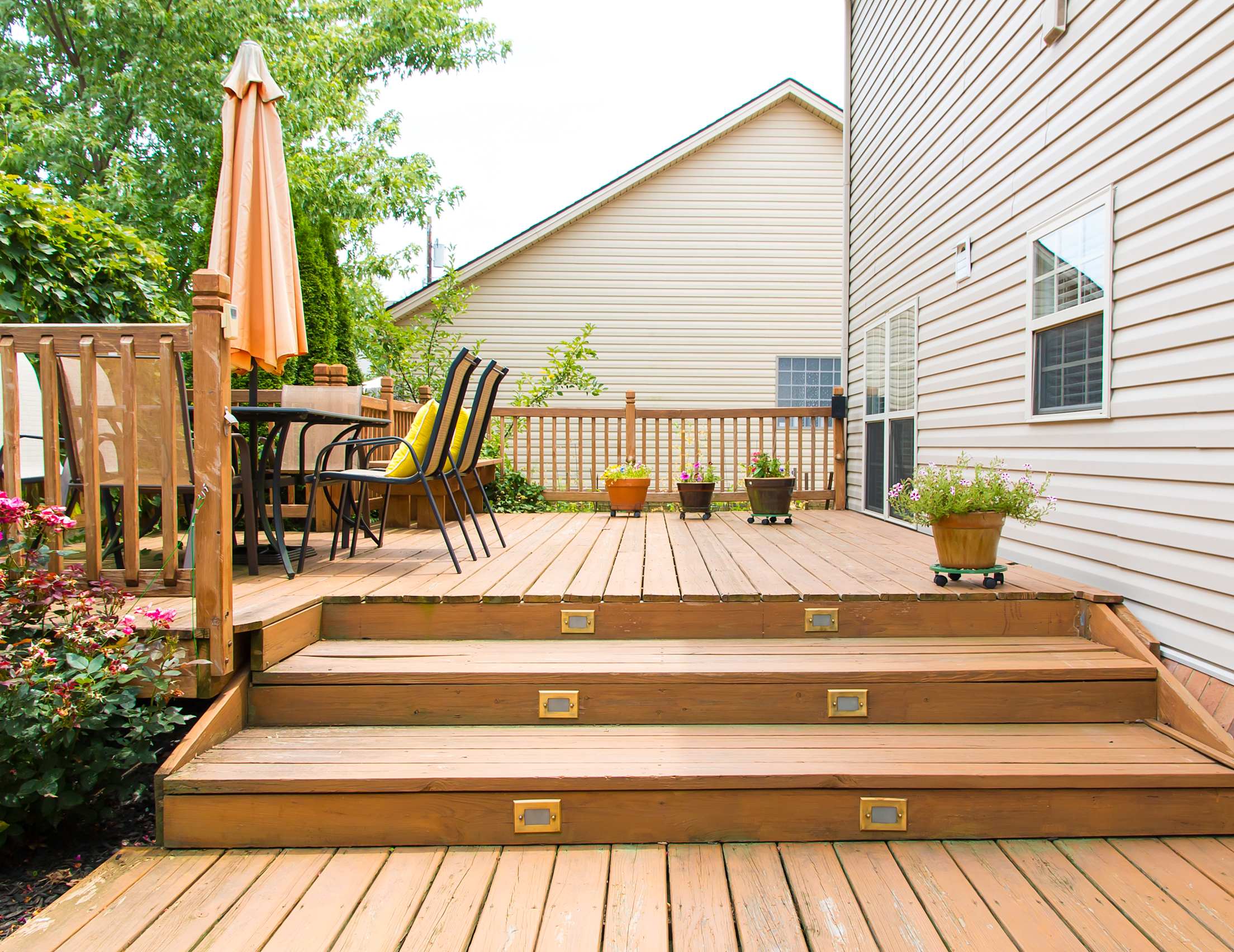
5 Things You Can Do to Reduce Light Pollution
Make these simple, low-cost changes to help migrating birds and improve your sleep.

Light pollution—or the effects of artificial lights at night—dims our view of the sky, but the consequences are more than a loss of stargazing.
“Ultimately, we all rely on darkness for some aspect of health,” says Rick Utting of Clanton & Associates, Inc., a lighting design and engineering company. Replacing darkness with artificial light alters ecosystems, leading to profound problems, from disrupting mating rituals and reproduction for frogs, fireflies, and others to triggering migratory problems for birds. Artificial lights also affect our circadian rhythm, which can disrupt our sleep and potentially lead to metabolic disorders.
“The total effect of light pollution, also known as skyglow, is still unknown. That’s the scary part, the unintended consequences,” Utting says. And it’s on the rise: One study found that from 2011 to 2022, the sky got nearly 10 percent brighter each year.
That’s a distressing trend. But there are simple, low-cost changes that you—as a homeowner or renter—can make to limit how much you’re contributing to light pollution.

Think twice before adding an outdoor light.
“Adding outdoor light has become so easy, anyone can order and install decorative lights for their terrace or patio,” Utting says. Just because you can, doesn’t mean you should.
Only light what truly needs illumination. This is one of the top lighting principles to keep in mind, according to Dark Sky International, which works to combat lighting pollution.
You likely do not, for instance, need to shine a light from dusk to dawn over your backyard. “It’s copacetic to light when necessary and useful,” Utting says. But consider this, he says: “Is light that’s needed at 10 p.m. also needed throughout the remainder of the night?”
Consider motion detectors and other occasional light options.
Perhaps you’re thinking: I need light by my outside entryway for safety reasons. That’s not necessarily the case. Continuous, bright exterior lighting has not been shown to reduce crime.
On the contrary, lighting can create dark patches for people to hide in. This is because our eyes cannot reconcile both low moonlight and bright artificial light happening simultaneously, Utting says. “Bright lights at night set our visual adaption and may make your entryway seem artificially dark,” Utting says. That is: If there weren’t a bright light near your entryway, the space would seem less dark.
If you need light to safely enter your home, or you want to deter break-ins, use timers and motion sensors so that lights beam only when needed. Plus, consider using alternatives to fixtures, such as reflective paint on stairs and pathways, DarkSky recommends.

Use low light levels, and opt for warm-hued bulbs.
Always avoid blue light at night, and instead, use warm light sources for any outdoor lighting, per Dark Sky. “Don’t turn night into day. Use a warmer color temperature that is more appropriate for nighttime,” Utting says. Opt for a bulb that’s 2,700 Kelvin (which leads to warm light) rather than one that’s 5,000 K (which emits a blue-white light, reminiscent of what you would see in a hospital or other very brightly lit space).
Finally, use the lowest possible light levels, and consider the ground surface, since some are more reflective than others.
Aim light where it’s needed.
“Avoid the temptation to overlight,” Utting says. Be strategic about where light goes—you want to aim it so it hits where illumination is needed. “Lighting that is going upward into the night sky is waste,” he says.
Look for shielded fixtures, which have a cap at the top so no light emits upward from the bulb and are angled to only light below the fixture (and not above it), according to the Arizona-based Fountain Hills Dark Sky Association.
Fixtures that meet these standards are readily available at hardware stores and online. Check the DarkSky database, where you can search by product, company, and other categories, to find DarkSky-approved products.
“If you need lighting at night, use just enough for the task and make sure the light is directed or shielded so we don’t waste light where it is not needed,” Utting says.
Close your curtains.
Here’s the simplest action you can take: At night, instead of letting the glow of your lights—and your television—blare out the window, close your curtains or shades, Utting suggests.